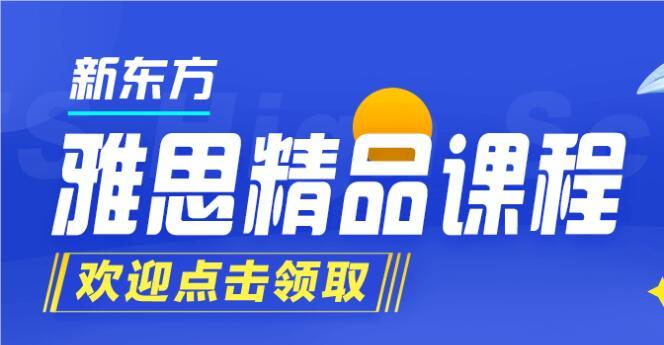对于许多计划出国留学或移民的人来说,雅思(International English Language Testing System)考试是一个重要的里程碑。为了在雅思考试中取得好成绩,许多人选择参加雅思培训班。但是,面对众多的培训机构和课程,哪家培训班比较好了?小编为大家推荐几家机构,仅供参考
宁波雅思培训机构
1.宁波新东方雅思培训机构
2.宁波朗阁雅思培训机构
3.宁波新航道雅思培训机构
4.宁波新通雅思培训机构
(以上内容来源于网络,仅供参考,排名不分先后,机构选择需酌情慎选,不代表本网站观点!)
新东方教育专注出国留学,提供雅思培训、托福培训、SAT/ACT/GRE/GMAT、小语种等出国留学语言培训,内容涵盖了公开讲座、机经练习、备考资讯 、实用好用APP下载等特色服务,致力打造值得信赖的出国留学线上学习平台

如果你......
出国留学,急需出分,想要达到目标
回自学效率低,希望有老师督促辅导?
国孤军奋战,无人陪伴,缺乏动力?
适合学员:
雅思基础水平4.5分以上
想要短期集训,备考雅思的学员
自觉性弱,拖延症患者,需要高强度跟盯、沉浸式学.习氛围
雅思初战、多战,需要系统学习或补足弱项
备战英语四六级,考研留学两手准备的学员
雅思模拟试题在雅思备考过程中所起的作用不可小觑,通过模拟练习题,我们可以很直接地了解到自己的备考状况,从而可以更有针对性地进行之后的复习。希望以下内容能够对大家的雅思备考有所帮助!
From Economist.com
1.NEELIE KROES, the European Union’s competition commissioner, did not mince her words when reporting on Europe’s energy markets on Wednesday January 10th. Europe’s energy firms have failed to invest in networks and so customers are suffering. Those “vertically integrated” energy companies such as Electricité de France (EDF) or Germany’s E.ON, widely dubbed as “national champions”, are effectively behaving like local monopolies. Shy of competition, eager for artificially high prices, they are helping to block the efficient generation, transmission and distribution of energy on the continent.
2.Energy prices vary wildly across Europe. Ms Kroes wants to see cheaper energy, and intends to push suppliers to divest their distribution network and to get them to invest more in transportation systems so that more energy—in the form of gas, or electricity, for example—can flow easily over borders. It is remarkably hard, for example, for gas-poor Germany to import from the neighbouring, gas-rich Netherlands. Companies that dominate national markets have, so far, had little interest in improving the interconnections which would mean lower prices for consumers across the continent.
3.Ms Kroes, of course, will struggle to get her way. The European Commission, which on the same day presented its recommendation for improving EU energy policy, also wants to see the unbundling of ownership, the legal separation of energy suppliers and transporters, something that the integrated energy companies and interested governments, notably in France and Germany, are bound to oppose ferociously.
4.Complicating the matter is an argument over the security of energy supply in Europe. Much has been made of the risk for western Europe of depending too heavily on Russian exports of gas. Russia under Vladimir Putin is prone to using energy exports as a blunt tool of foreign policy, especially when trying to bully countries in its hinterland. Last year Russia interrupted gas deliveries to Ukraine, affecting supplies in central and western Europe too. This week it blocked oil exports passing via Belarus to Europe, though that spat was soon resolved.
5.The risk is that concerns about security of supply may be used spuriously by those in Europe who oppose the sort of liberalisation encouraged by Ms Kroes. The likes of E.ON and EDF may claim that only protected national champions are able to secure supply, by striking long-term deals with powerful foreign suppliers. The Commission disagrees. Such deals are too often politically motivated and far from transparent. Protection has been tried for long enough and evidently has not worked for the internal market, nor have these companies secured the best deals for consumers from the Russians.
6.In contrast, the Commission's new policy proposes, ideally, a break-up of these companies into suppliers and distributors. (As a second best solution, especially for France and Germany, it recommends the management of the networks by a third party.) Properly independent managers of Europe's energy networks would have a strong incentive to build interconnecting pipelines and power lines across borders. For the gas market another means of ensuring competition and security would be finding a more diverse range of suppliers, for example by building more terminals for the import of liquified natural gas. It would also be likely to mean lower prices, if the example of liberalised Britain over the past ten years is anything to go by.
7.Whether any of this is likely to happen soon, however, is another matter. The Commission is also calling for European governments to agree on a common effort to reduce carbon emissions by at least 20% by 2020 (compared with 1990 levels). If America is willing to play ball, the Commission proposes to reduce emissions by as much as 30%. Achieving either target would mean promoting cleaner cars, a more effective emissions-trading system for Europe, wider use of public transport and a sharp increase in the use of renewable sources of energy, like wind and solar power. All that is laudable enough, but will also require political horse-trading as governments—Europe’s leaders are due to meet in March to discuss the various energy proposals—try to avoid commitments that may hurt domestic energy companies or make European firms less competitive than rivals in America, Asia and elsewhere.
(689 words)
